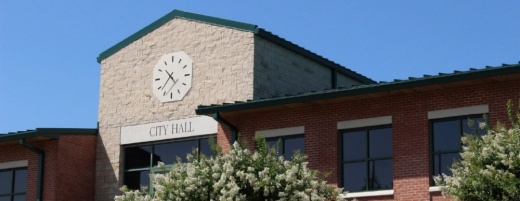Ameresco sampled over 80 of the city’s over 14,000 water meters and found an average accuracy rate of 92.8% for residential water meters.
“In essence, the city is losing almost 8% of the revenue that they should be collecting because the meters are inaccurate,” Nobles said.
For commercial water meters, the accuracy rate is 89.4%, meaning the loss is even greater on the commercial side, Nobles said.
City Manager Morad Kabiri clarified Friendswood pays Houston for its water, so if it goes unrecorded through residences, the city is paying for water residents are not paying the city back for.
“Cumulatively, we’re talking several hundred thousand if not more than $1 million worth in revenue loss," he said.
Today, Friendswood’s water meters are mechanical, which means they have a spinning part inside that records water usage. Over time, this wears down, leading to inaccuracies, Nobles said.
To fix the problem, Ameresco plans to replace each mechanical water meter with a smart meter. Each smart meter has a radio that sends a signal to a gateway attached to a water tower or other elevated structure. The data is then uploaded to the cloud for billing purposes, Nobles said.
Smart meters do not have spinning parts, so they remain more accurate for longer. Another advantage of smart meters is residents will be able to track their water usage data in real time using their phones, Nobles said.
By tracking data in real time, residents will be able to set up alarms if water usage goes above a certain threshold. This way, residents who are out of town on vacation could be able to tell when a pipe at home is leaking, for instance, Nobles said.
Replacing each water meter will take Ameresco about one year and cost the city $9 million. The result is less lost revenue.
Council Member John Scott pointed out it will take eight or nine years to break even on the project. Kabiri said if the city waits to do this project, the problem will only get worse, and the lost revenue will increase.
If City Council approves the contract in July, work to replace meters could begin as early as late July or early August, Kabiri said.
In other business
City Manager Morad Kabiri told Friendswood City Council June 7 the city did not receive the $78 million grant for which it applied for drainage projects.
Friendswood late last year applied for a Community Development Block Grant Mitigation Program grant to fund drainage projects benefitting residents along Clear Creek. The Texas General Land Office did not award the grant but did award grants to other Galveston County cities including Texas City, La Marque, Dickinson and Galveston, ranging from $15 million to $54 million, Kabiri said.
The main reason Friendswood did not receive the grant is because the proposed projects did not benefit enough low- to moderate-income residents, Kabiri said.
Harris County also did not receive a grant, but the county protested to the GLO. As a result, the county might now receive a $750 million direct allocation, Kabiri said.
Friendswood was told there would be two rounds of CDBG funding, but on June 7, the city learned that was no longer the case.
“That was unfortunate,” Kabiri said. “It’s not likely we’re going to have another opportunity to submit the grant.”
Instead, the city will work with Harris County Flood Control District and the Houston-Galveston Area Council to possibly do the projects Friendswood proposed, Kabiri said.





